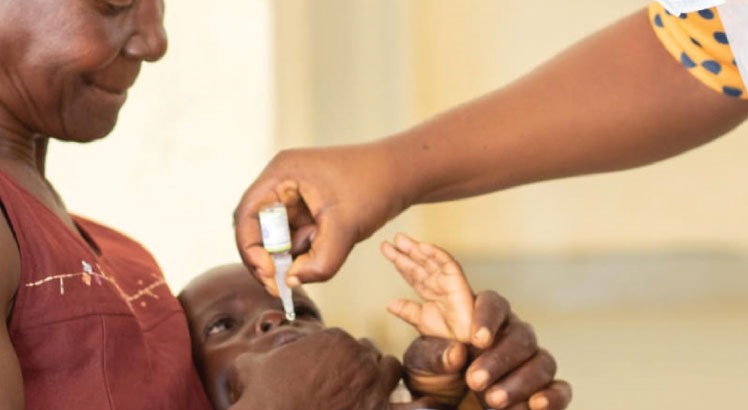Every end of the month, Prisca Mafuta travels 12 kilometres from Chiwawo Village, Traditional Authority (T/A) Msakambewa in Dowa District to a local public health facility to deliver performance reports for her mother care group.
She is the chairperson of Msakambewa mother care group which, since 2020, has been working with health service providers in the area to promote immunisation, especially for under five children.
Mafuta says in the past, due to long distances, most mothers and guardians failed to have their children fully immunised.
She says: “It was a challenge for many children to get fully immunised because they depend on their parents to take them to health facility. When a parent or guardian has other activities to focus on, they forget to take their children for immunisation.
Mafuta says all her children are fully immunised and despite not going further with her education, she knows the importance of immunisation.
Immunisation prevents chidren from contracting some diseases
She says: “That is why when taught by the Malawi Health Equity Network [Mhen] through Kasalika Community Development Organisation, I took up the role of being a volunteer to help women in the area have their children immunised.”
Mafuta says it has been an exciting journey seeing her community responding positively to the immunisation awareness campaign.
Hellena Makondera from Sungeni Village T/A Chakhaza in the same district says care groups have helped to change the narrative of getting children immunised.
She says everyone in their communities now believe they have the responsibility to take care of children regardless of blood ties.
Explains Makondera: “What we want is for our children not to fall sick because they missed immunisation. And with the knowledge and expertise that we acquired, we are now champions of change in our communities.”
She says one of the challenges the communities are facing is lack of infrastructure where under-five children can access healthcare services.
“Children end up getting the services under a tree or we sometimes arrange with churches to use their structures,” she says.
To ensure that every child is immunised through the Health Systems Strengthening Programme, Mhen in collaboration with Gavi, has trained 28 mother care groups in the district to be ambassadors of change in their communities.
The women go door to door looking for children who default on immunisation.
The immunisation was for expectant mothers, tuberclosis, polio, pneumonia, measles, malaria, diarrhoea and cervical cancer.
According to Msakambewa Health Centre surveillace assistant Chikaiko Banda, the facility has a catchment area of 31 700 people and 3 000 are under the age of two.
He says to sustain the mother care group, women formulated village savings and loans groups to enable them establish small-scale businesses.
Says Banda: “We needed to motivate the women since this is a voluntary job. Since the grouping was introduced, most members opted out as they saw no financial benefit.
“That is why we thought of helping them to come up with the savings and loans group to save and borrow money when the need arises.”
Banda appeals for more refresher courses, especially for men who are eager to work with women.
Kasalika Community Development Organisation executive director Gift Mwale says mother care groups have lessened the pressure health workers faced in the past.
He says: “Most of our health workers only help children that are available at the facility and not in the villages. So, having the women to check if all children are being immunised has created awareness among communities on the importance of immunisation.”
Mwale says they are working with 24 health facilities and have taken the initiative to all communities in the district.
Mhen executive director George Jobe says mother care groups are trained in advocacy to solve issues at community level.
He says: “Mother care groups know all the vaccines and encourage parents and guardians to get their children immunised. They have immunisation cards which they use to trace defaulters.
“So far, we have seen change on involvement of men in immunisation issues and most of these mother care groups have advocated for refrigerators and solar power to protect the vaccines.”
Jobe adds that at community level, women have lobbied for increased numbers of health workers and built houses for them.
According to the 2021-2026 Malawi Child Health Strategy II, Malawi received a shield in 2012 from Gavi, the vaccine alliance, as a symbol of recognition for maintaining high levels of immunisation.
The post Women advocate for children’s immunisation appeared first on The Nation Online.
 Moni Malawi
Moni Malawi 

